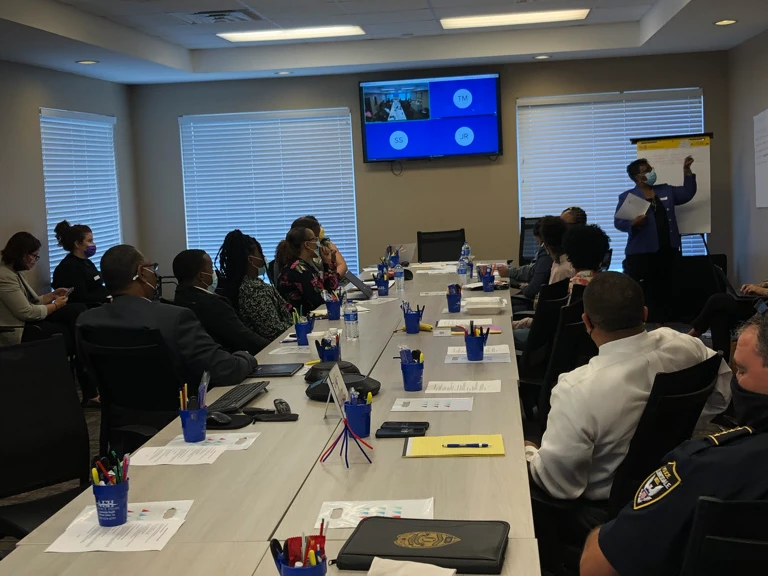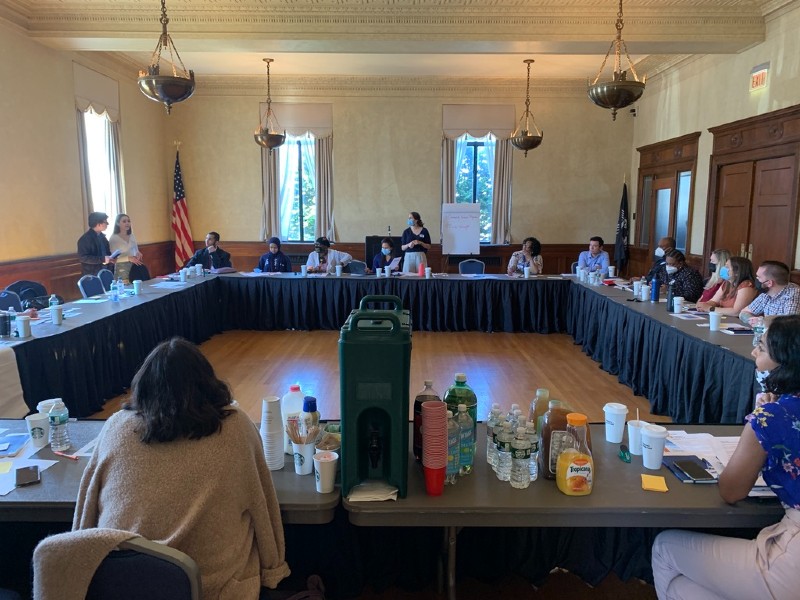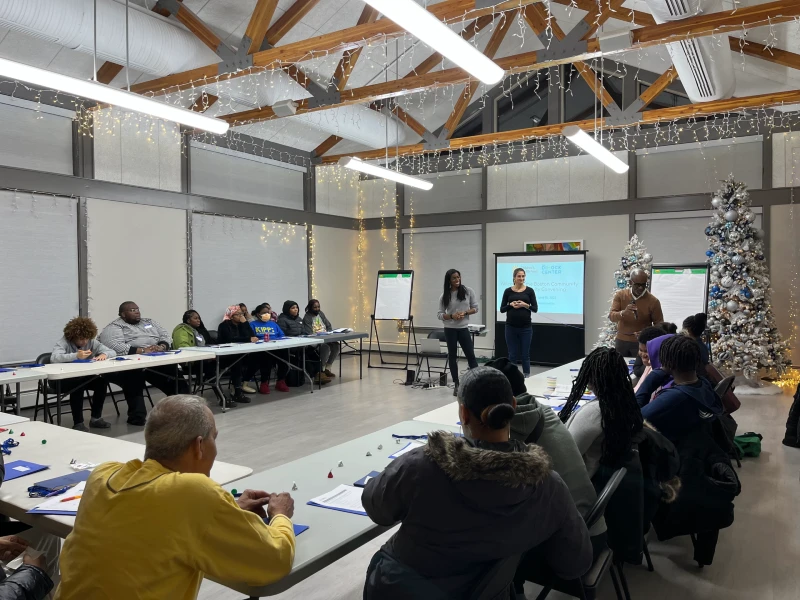What We Do
Community Engagement
The Community Health Equity Convening Series is a CHF initiative that gathers local stakeholders from a variety of sectors to identify localized social determinants of health and collaboratively strategize solutions. The convenings position patients, families, and youth as key stakeholders among healthcare professionals, policymakers and social service organizations to drive community-based change. To date, CHF has completed four convenings in collaboration with three national network partners and one new collaborator.
Clarksdale, Mississippi
Children’s Health Fund and our partners at Aaron E. Henry Community Health Services Center hosted the first Community Health Equity Convening on August 31, 2021 in Clarksdale, Mississippi. Local high school-aged youth participated in a pre-convening focus group to identify key challenges within the community from the youth perspective. Youth identified the lack of recreation space as a primary social determinant impacting both mental and physical health within the community. This topic guided the discussion at the convening where local stakeholders representing a variety of sectors collaboratively strategized solutions. Participants also identified negative impacts to family unity as a consequence of lacking recreation space. Following the convening, the youth drew upon the convening’s ideas and discussions to conceptualize a plan to redevelop a local park. The youth presented their blueprints to the Clarksdale City Council and received unanimous approval and partial financial support.

Trenton, NJ

Children’s Health Fund and our Trenton-based partners at Henry J. Austin Health Center hosted a community health equity convening on April 13, 2022. Through a series of breakout sessions and plenary discussions, participants collaboratively identified the lack of community advocates as a pressing challenge that needs to be addressed. Participants conceptualized the “Community Cousins” program–a multi-organizational initiative that will serve as a local hub of resources pertaining to nearly every aspect of life in Trenton, as well as a network of advocates who will ensure information is updated and accessible. The convening challenged stakeholders to consider evaluation strategies, long-term sustainability, funding requirements, key stakeholders, and existing resource gaps to inform a well-developed project plan. Following the convening, nearly all participating organizations expressed interest in being a part of the “Community Cousins” implementation process.
Washington, D.C.
Children’s Health Fund and our partners at Children’s National Hospital in Washington, D.C. hosted a community health equity convening on June 27th, 2022. Participants identified food insecurity and the communication of available resources as primary challenges facing residents of Southeast D.C. To address these issues, participants conceptualized a community and grocery store partnership to facilitate local events aimed at increasing access and education surrounding nutrition, food systems, and self-sustainable methods of food production and preparation. Through this proposed initiative, grocery stores would partner with housing organizations, plant nurseries, schools, healthcare institutions, and local government agencies to build the skills needed to combat food insecurity. These proposed events would be considerate of native foods and culturally appropriate recipes. Participants identified key stakeholders, developed an evaluation plan, and drafted a list of potential challenges and all participants expressed interest in carrying the initiative forward.

Boston, MA

Children’s Health Fund partnered with new collaborators at The Dimock Center to host a community health equity convening on December 14 and 15, 2022. Residents of all ages from the New Academy Estates apartments participated in two evenings of discussion and learning on the topic of heart health. Prior to the convening, The Dimock Center identified heart health as a primary concern within the community, exacerbated by declining trust and engagement with healthcare as a result of the COVID-19 pandemic. Participants were guided through engaging discussion and activities to develop a street teams project model to engage local residents around heart health.






